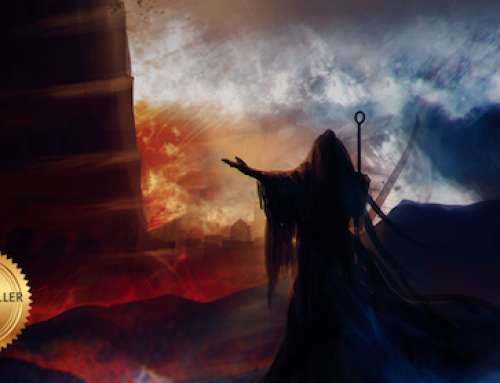From Page to Screen: Adapting Literary Plots in Online Games
In recent years, the gaming industry has increasingly looked to literature for inspiration, adapting classic and contemporary novels into immersive online games. Literary works provide rich stories, complex characters, and intriguing worlds that can be transformed into engaging interactive experiences. Adapting a literary plot into a game, however, presents unique challenges as well as exciting possibilities. This article explores how developers bring stories from page to screen, the benefits of adapting literary plots, and the impact on players.
The Appeal of Literary Adaptations in Online Games
Boeken hebben altijd als inspiratiebron gediend voor andere media, van films tot televisie. Games bieden echter een unieke kans om actief deel te nemen aan een verhaal in plaats van het passief te consumeren. Voor lezers die ervan hebben gedroomd hun favoriete werelden binnen te stappen, maken op literatuur gebaseerde spellen die droom werkelijkheid. Zoals auteur W. Bradford Swift het verwoordt: “Games geven ons de mogelijkheid om de diepten van een verhaal echt te beleven.” Op platforms zoals my-stake.nl kunnen spelers genieten van deze meeslepende ervaring.
Players are drawn to these adaptations for several reasons:
- Immersive storytelling: Games based on novels provide players with a familiar story in a new format, allowing them to delve deeper into the plot.
- Emotional connection: Playing as beloved characters or exploring familiar worlds enhances emotional engagement.
- Replayability: Games allow for choices and multiple endings, offering fans varied experiences within their favorite stories.
Key Steps in Adapting a Literary Plot
To successfully adapt a book into an online game, developers follow a carefully structured process to ensure that the essence of the original story is preserved, while making it engaging for gameplay.
-
Selecting the right story: Not all literary works are suited for adaptation. Stories with rich worlds, complex characters, and suspenseful plots work best.
-
Creating interactive elements: Books are linear, while games are interactive. Developers must identify points in the story where players can make decisions, explore the world, or engage in quests.
-
Building the world: Descriptive passages in books give developers a foundation for visualizing the game world. Landscapes, architecture, and character design are all influenced by the text to remain true to the author’s vision.
-
Incorporating game mechanics: The story must be aligned with gameplay mechanics, such as puzzles, combat, or exploration. A balance must be struck between staying true to the plot and keeping the gameplay engaging.
-
Adapting the narrative structure: In a game, the player’s actions impact the flow of the story, creating the need for a flexible narrative. Developers may add side plots or multiple endings to enhance replayability.
Challenges of Literary Adaptation
Adapting literature for games is not without its challenges. Unlike other forms of media, games require an interactive element, and this can clash with the original, often linear, narrative structure of a novel.
-
Maintaining story integrity: Staying true to the story’s original tone and themes while incorporating gameplay can be challenging. Certain elements may need alteration for compatibility with game mechanics.
-
Balancing action and narrative: Games demand engagement through action, while novels often rely on introspection and detailed descriptions. Developers need to find ways to incorporate both without diminishing either.
-
Creating character depth: Literary characters are usually complex, with inner monologues and detailed backstories. Bringing this depth into a game requires creative dialogue and interactions that reveal character traits without slowing down gameplay.
Successful Examples of Literary Adaptations in Online Games
Some online games have become well-known for their successful adaptations of books, bringing literary classics to a new generation of fans.
-
The Witcher Series: Based on the novels by Andrzej Sapkowski, The Witcher games have expanded the book's universe while staying true to its characters and themes. Players explore a vast world, encountering characters and plotlines inspired by the books, while still making choices that shape their unique experience.
-
Metro 2033: This game, based on Dmitry Glukhovsky's novel, captures the dystopian atmosphere of the original work. It adds interactive elements that allow players to explore the author’s post-apocalyptic world in depth, with choices that impact the story's progression.
-
Sherlock Holmes Games: Drawing from Arthur Conan Doyle’s stories, these games allow players to step into the shoes of the famous detective, using clues to solve cases. The games successfully integrate narrative and puzzle-solving, capturing the essence of Holmes's deductive process.
Benefits of Adapting Literary Works for Online Games
Adapting literary works into online games benefits both the gaming and literary industries by merging storytelling and interactive entertainment in new and exciting ways.
-
Attracting a wider audience: Games introduce classic literature to younger players who may not have read the original works. This cross-industry exposure encourages players to explore the books after experiencing the games.
-
Increasing narrative depth in games: Literary adaptations provide richer narratives, elevating the storytelling potential of games. They offer players stories with established, complex themes, enhancing the depth of the gaming experience.
-
Developing empathy and critical thinking: Playing through complex narratives allows players to connect emotionally with characters, develop empathy, and make decisions based on moral dilemmas. These skills are valuable in real-world applications.
Future of Literary Adaptations in Gaming
The gaming industry is expected to continue exploring literature as a source for new, narrative-driven games. With advancements in virtual reality and AI, the possibilities for immersive adaptations are endless. VR, for example, could allow players to experience a story from a first-person perspective, fully inhabiting the world of the book.
As technology evolves, we may see more adaptations that offer even greater interactivity, where players not only experience the story but also shape it in ways unique to each playthrough. This could include AI-driven characters that respond to player decisions or adaptive plotlines that adjust based on player choices.
Conclusion
Adapting literary plots for online games opens up a new frontier in interactive storytelling, combining the depth and complexity of books with the engagement and immersion of gaming. As more developers embrace literature as a source of inspiration, players can look forward to exploring beloved stories in ways that were once unimaginable. These adaptations not only enhance the gaming experience but also bridge the gap between literature and digital entertainment, allowing players to engage with classic and contemporary novels in innovative ways.





Leave A Comment